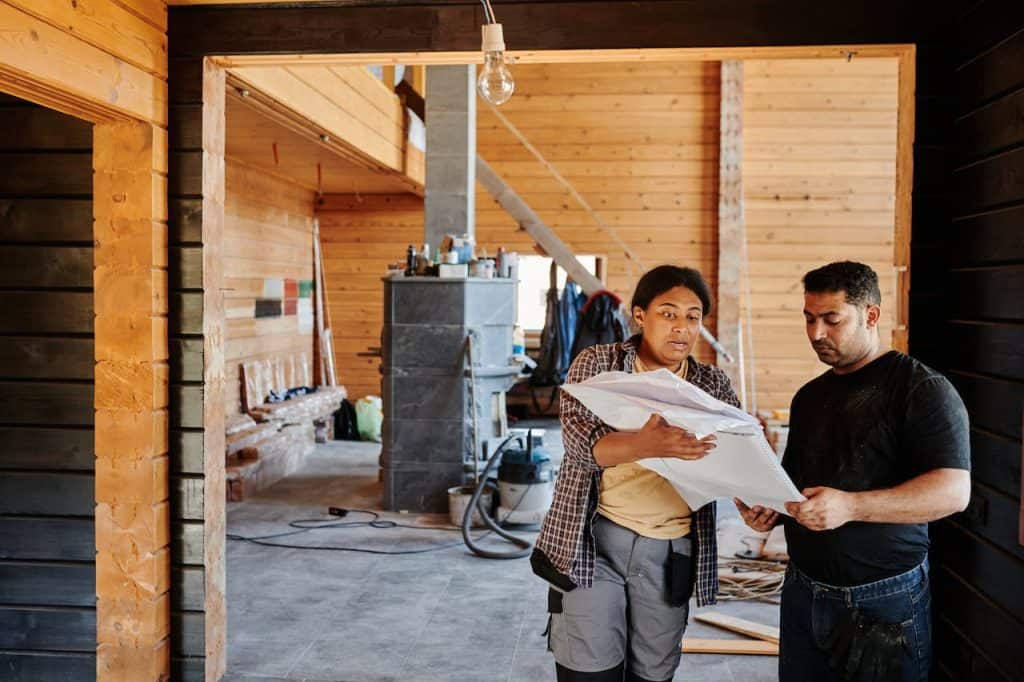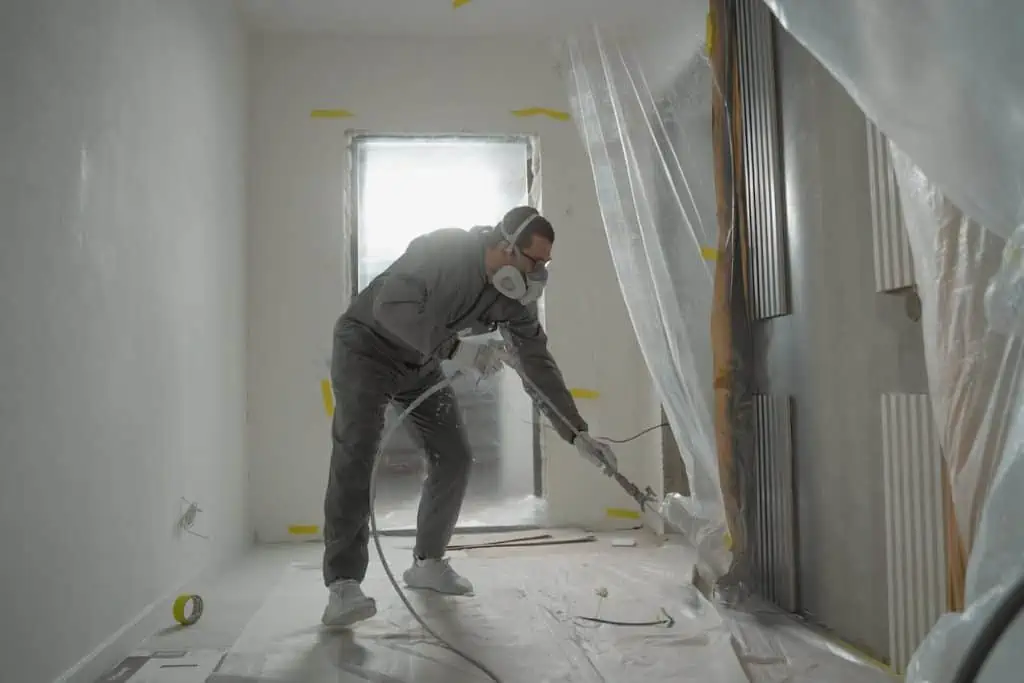- Examine what is a restoration company and the services it provides
- Discover why home restoration companies make good acquisition targets
- How to properly appraise/evaluate a home restoration business
- The current status of the home restoration industry
In today’s market, home restoration companies are gaining traction, offering a compelling acquisition opportunity. This rise in popularity isn’t just a passing trend; it’s a reflection of a growing interest in home improvement and preservation. As a business buyer, delving into the home restoration business could be a strategic move, aligning with the current market dynamics and consumer interests. This sector presents a unique blend of innovation and tradition, making it an attractive option for those looking to invest in a field with both stability and growth potential.
These firms do special work in constructing and redoing houses, catering to the needs of homeowners, property investors, and those who enjoy preserving old places. Buying one of these companies as a business investment is smart for a number of reasons.
From always having work because houses are getting old to making properties worth more, home fixing-up companies offer a business canvas full of potential.
From always having work because houses are getting old to making properties worth more, home fixing-up companies offer a business canvas full of potential.
Let’s dig into why home fixing-up businesses stand out and what makes them a great choice for people looking for a good investment opportunity.
What is a Home Restoration Company?

A home restoration company is a specialized business that provides professional services to renovate, repair, and restore residential properties.
These companies typically cater to homeowners, real estate investors, or other individuals interested in improving the condition and value of homes.
Services Offered
Home restoration companies offer a wide range of services, including:
- Interior Renovation: This involves remodeling rooms, kitchens, bathrooms, and living spaces to enhance aesthetics, functionality, and comfort.
- Exterior Renovation: Services such as roof repair, siding replacement, window and door installation, and landscaping to improve curb appeal and structural integrity.
- Structural Repairs: Fixing foundation issues, structural damage, or other significant problems that can compromise the safety and stability of the home.
- Historic Restoration: Specialized restoration services to preserve and restore historic properties, often requiring attention to detail and adherence to historical guidelines.
- Water and Fire Damage Restoration: Addressing the aftermath of water leaks, floods, fires, and other disasters to bring the home back to its pre-damaged condition.
Home Restoration Industry: Market Overview
The home restoration industry is experiencing significant growth and increased demand in recent years. This growth is demand is driven by several factors, such as:
Aging Housing Stock
In the United States, a significant portion of the housing stock is aging. As homes get older, they require more maintenance, repairs, and renovations.
According to the National Association of Home Builders (NAHB), the median age of owner-occupied homes in the United States was 41 years in 2021. Older homes often need extensive restoration work to remain safe and comfortable, creating a steady demand for home restoration services.
Natural Disasters
Natural disasters, such as hurricanes, floods, wildfires, and earthquakes, have increased in recent years due to climate change. These disasters can cause extensive damage to homes, leading to a surge in demand for restoration services. For instance, according to the National Oceanic and Atmospheric Administration (NOAA), the United States experienced 22 weather and climate disasters in 2020, each costing over $1 billion in damages.
Homeowners’ Desire to Increase Property Value
With the booming real estate market, renovating or restoring a home can result in higher resale prices. This motivation to enhance property value has fueled the demand for home restoration services. According to a report by the National Association of Realtors, remodeling projects can yield substantial returns, with a national median cost-to-value ratio of 63% in 2020.
Market Size and Growth Potential
The home restoration industry is substantial and continues to grow. For example, the residential remodeling market in the United States was valued at over $390 billion in 2021, according to the Harvard Joint Center for Housing Studies. This market has been on an upward trajectory, and it’s expected to maintain strong growth due to the aforementioned factors.
Technological Advancements
Technology plays a crucial role in the growth of the home restoration industry. From advanced materials and energy-efficient solutions to digital tools for project management and design, technology is improving the efficiency and quality of restoration work, attracting more homeowners seeking modern, eco-friendly, and high-tech solutions.
Sustainability and Energy Efficiency
The increasing emphasis on sustainability and energy efficiency drives the demand for restoration projects focused on environmentally friendly and energy-saving features. This trend aligns with both homeowners’ desire for comfort and cost savings, further contributing to the industry’s growth.
Factors that Make Them Good Acquisition Targets

Whether you are an individual investor or a strategic buyer, there are several advantages to the acquisition of a home restoration company, such as:
- Diverse Revenue Streams: These companies often offer various services, from general remodeling to specialized restoration work (e.g., fire or water damage repair). This service diversity allows for multiple revenue streams, reducing dependency on a single service and catering to a broader clientele.
- Stable Demand and Industry Growth: The demand for home restoration services remains relatively stable, driven by factors like aging housing stock, natural disasters, and homeowners’ desire to increase property value. This steady demand provides a reliable revenue stream and growth potential, making home restoration companies an attractive acquisition option.
- Strong Customer Base & Brand Reputation: Home restoration companies offer a broad range of services, including remodeling and specialized repair, such as fire or water damage. This reduces dependence on a single service and attracts a diverse clientele, mitigating risk from market changes.
- Established Infrastructure and Expertise: A well-established home restoration company typically has an experienced workforce, established supplier relationships, and operational systems in place. Acquiring such a company means gaining access to valuable expertise, a proven track record, and established processes, reducing the learning curve for a new owner.
- Scalability and Opportunities for Expansion: Acquiring a home restoration company offers opportunities for expansion and scalability. With the right strategies, a successful acquisition can be leveraged to enter new markets, broaden service offerings, or extend geographical reach, thereby increasing the company’s market share and profitability.
Considerations When Appraising Restoration Businesses
Appraising a home restoration business is a complex process that involves evaluating various factors to determine its value accurately. Whether you’re a prospective buyer or seller, here are the key factors to consider when appraising a home restoration business:
- Financial Statements
- Revenue and Profitability: Review historical financial statements to understand the company’s revenue trends, gross and net profits, and overall financial health. Analyze growth patterns and profitability margins.
- Cash Flow: Evaluate the company’s cash flow to understand its ability to cover operational expenses, investments, and debt service.
- Revenue and Profitability: Review historical financial statements to understand the company’s revenue trends, gross and net profits, and overall financial health. Analyze growth patterns and profitability margins.
- Assets & Liabilities
- Inventory and Equipment: Evaluate the value of existing inventory and equipment and their condition and depreciation.
- Debt and Liabilities: Assess outstanding debts, loans, and other financial obligations that may impact the company’s valuation.
- Inventory and Equipment: Evaluate the value of existing inventory and equipment and their condition and depreciation.
- Customer Base and Contrac
- Customer Diversification: Consider the diversity and stability of the customer base. A broad, loyal customer base can add value.
- Contractual Agreements: Review existing contracts, agreements, and client relationships, as they may represent predictable revenue streams.
- Customer Diversification: Consider the diversity and stability of the customer base. A broad, loyal customer base can add value.
- Brand and Reputation:
- Brand Recognition: Assess the company’s brand recognition and reputation in the market, including customer reviews and testimonials.
- Market Differentiation: Determine if the company has a unique selling proposition or niche expertise that sets it apart from competitors.
- Brand Recognition: Assess the company’s brand recognition and reputation in the market, including customer reviews and testimonials.
- Legal and Regulatory Compliance:
- Permits and Licenses: Verify that the business is compliant with local permits, licenses, and regulations related to home restoration and construction.
- Ongoing Legal Issues: Check for any pending or potential legal issues, such as lawsuits or regulatory violations.
- Permits and Licenses: Verify that the business is compliant with local permits, licenses, and regulations related to home restoration and construction.
- Market Analysis:
- Market Conditions: Analyze the local market for home restoration services, including competition, demand, and growth potential.
- Competitive Position: Evaluate the company’s competitive position and regional market share.
- Market Conditions: Analyze the local market for home restoration services, including competition, demand, and growth potential.
- Risk Factors
Identify and assess any potential risks or liabilities associated with the business, such as pending legal issues, insurance claims, or environmental concerns. - Seller’s Motivation
Consider the seller’s motivation for selling the business. Understanding their reasons can impact negotiations and the asking price.
FAQs
The main difference between restoration and renovation is the scope and purpose of the work. Restoration focuses on preserving the original condition and historical authenticity of a building, while renovation involves making improvements or changes to modernize or enhance a structure. Restoration aims to bring a building back to its original state, while renovation aims to update or improve it.
Restoration is a specific subset of construction. While construction encompasses all building activities, restoration focuses on repairing and preserving historic or old structures, aiming to maintain their original character and heritage value. So, while restoration involves construction work, it has a distinct purpose and approach compared to general construction projects.
Conclusion
Acquiring a home restoration company can be smart for business buyers looking to expand and thrive in the construction and renovation industry. This industry is growing rapidly due to aging housing stock, natural disasters, increasing investment in property value enhancement by homeowners, and technological advancements.
As a business buyer, investing in or starting a home restoration company is an attractive opportunity, as the demand for these services is expected to remain strong in the coming years.
If you’re an acquisition entrepreneur looking or planning to buy a small business company, consider taking Acquira’s Accelerator+ Program. This supercharged program will ensure you get to an LOI (Letter of Intent) within four months. That’s because Acquira’s team will conduct the search for you based on your unique investment thesis. We will then conduct the due diligence for you before negotiating the LOI and presenting it to you to sign.
The program also includes our world-class MBA-level training materials and access to a robust community of fellow Acquisition Entrepreneurs (not to mention, Acquira’s team of acquisition experts!)
Act quickly, as space in the program is extremely limited. Fill out the form below to assess your qualification, and expect to hear from us soon.
Fill out the form below, but space is limited.
Key Takeaways
- A home restoration company specializes in professionally renovating, repairing, and restoring residential properties.
- A home renovation company offers stable demand, multiple revenue streams, a strong customer base, and great expansion opportunities.
- The home restoration industry is currently experiencing significant growth and increased demand.
- Appraising a home restoration business involves evaluating various factors to determine its accurate value.
Acquira specializes in seamless business succession and acquisition. We guide entrepreneurs in acquiring businesses and investing in their growth and success. Our focus is on creating a lasting, positive impact for owners, employees, and the community through each transition.



